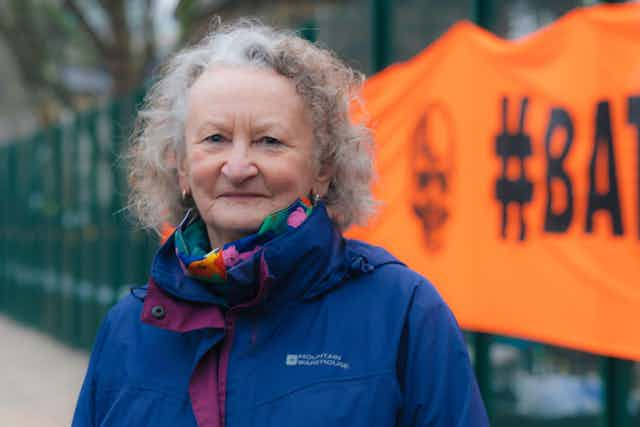After the disappearance of Sarah Everard, Green Party peer Baroness Jones’s suggestion of a curfew for men caused uproar. She told the House of Lords that:
I would argue that at the next opportunity for a bill that is appropriate, I might actually put in an amendment to create a curfew for men on the streets after 6pm, which I feel will make women much safer, and discrimination of all kinds would be lessened.
Her remarks came in the same week as International Women’s Day, as well as the publication of a UN Women UK survey showing that 97% of women aged 18-24 had been sexually harassed. It was also the week of Oprah Winfrey’s interview with Prince Harry and Meghan Markle, in which they spoke about the sustained misogyny and racism she had experienced from sections of the British media.
Jones later clarified that a curfew was “not an entirely serious suggestion”, and that she made the comments in reaction to the Metropolitan Police advice that women in south London should not go out alone – effectively implying a curfew for them. Although this guidance was quickly withdrawn, Jones’s point that women are casually handed informal curfews all the time still stands.
As the journalist Arwa Mahdawi explains: “We’re used to women being told to modify our behaviour as a reaction to male violence” – to avoid shortcuts after dark, to take a taxi home rather than walk – and nobody bats an eyelid. Yet, at a time when women’s bodies and women’s rights were at the top of the political agenda, Jones revealed that her comment had triggered “a deluge of misogynistic emails and tweets”.
It is striking that, despite the wording of Jones’s remark (“I might actually put in an amendment”) and the explanation that followed, so many people took it at face value rather than as the rhetorical device it evidently was.
Mixed reviews
Some people grasped Jones’s intention and expressed their support. As the broadcaster Jeremy Vine wrote on Twitter, Jones is “a serious and impressive person and she doesn’t make jokes. I completely understand where she is coming from here.”
Likewise, another user tweeted that: “When Baroness Jones says she’s making a point, she means exactly that. It’s mirroring the outrage that half the population has to put up with all the time.”
But a second group took Jones’s words literally and responded by attacking her proposal. For the Conservative MP and Chair of the Women’s Equality Committee, Caroline Nokes, the idea was “a bonkers suggestion”, while the Conservative leader in the London Assembly, Susan Hall, tweeted: “OMG the world is going mad. The greens are thinking about a curfew for men after 6pm at night – I’ve heard it all now.”
Another subset of audience members also gave Jones’s proposed curfew a literal interpretation and attacked her in gendered rather than party political terms. Among them was the journalist James Melville, who derided the proposal as “an extremist view shared by a tiny minority of people”. In a similar vein, the campaign group Men are Human attacked the “#totalitarian 6pm #curfew for ALL men [that was suggested] because ONE woman (out of 3.4mil [sic]) vanished.” The group went on to say that “Twitter is lit up with women hyperventilating about being next. Women are being taught to be afraid of men, and are demanding insane levels of protection.”
Infusing this category of responses is the age-old trope of women as “hysterical”. From this perspective, Jones’s suggestion is a massive overreaction to a single incident, and the (perfectly legitimate) concerns of other women for their safety are dismissed as irrational. Even their calls for more protection are ridiculed using the language of mental illness, which perpetuates the “crazy woman” stereotype and so invalidates their experiences.
These tropes are at odds with the intensely dry, straight way that Jones delivered the line. She seemed to be taken seriously at least in part because of the lack of irony or flourish in her tone as she said the words, and yet this section of her audience still received her as a hysterical woman.
Sadly, the vitriol directed at Jones was not an isolated incident. For women in public office, misogynistic online abuse comes with the territory and – on occasion – they may be targeted offline. Of course, #NotAllMen perpetrate such abuse, but it is somewhat ironic that (for want of a better way of putting it) Jones’s point was quickly lost beneath a tidal wave of hysteria.

